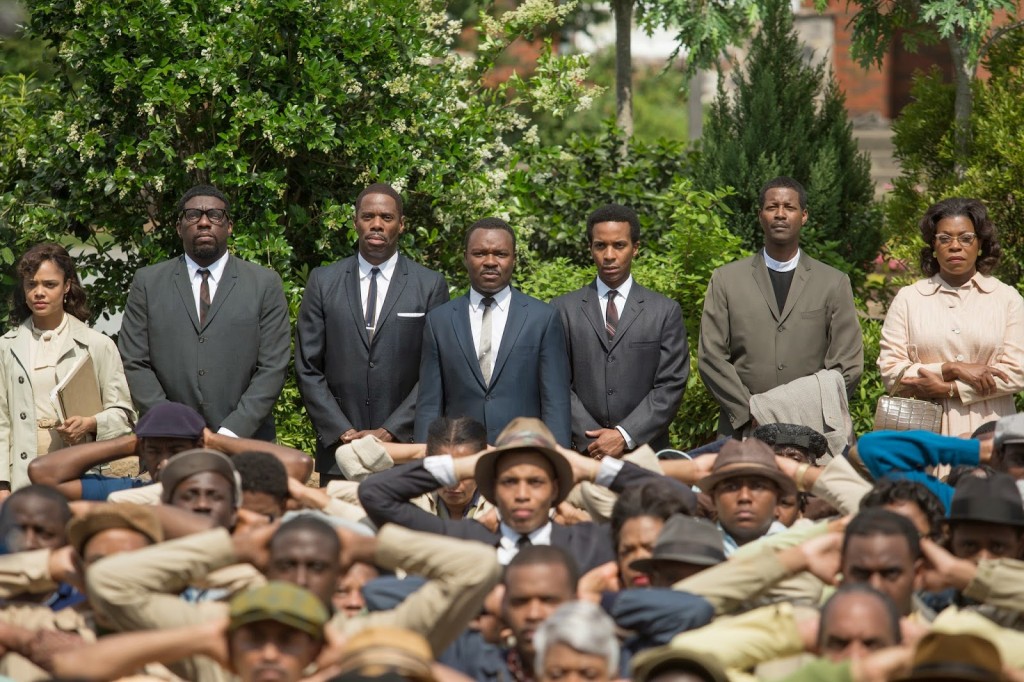Director: Ava DuVernay
Starring: David Oyelowo, Tom Wilkinson, Tim Roth
Year: 2014
There’s a thin line between using the past as a crutch and using it as inspiration. When creating a biopic, too many directors rely far too heavily on the existence of drama in their stories, forgetting to create a quality film that can stand on its own, independent from the strength of the inherent, and often historic, context. Audiences will eat up true stories, especially ones about significant events or people, because we enjoy watching these things come to life. But that doesn’t mean that what we’re chewing on is great stuff, well thought out cinema, it just means we were hooked by the plot we already know. Filmmakers may take advantage of this, make money off this, and even receive awards because of this, but it in no way guarantees that their projects are excellent films, only that they chose their material wisely. What does all that have to do with Selma? Thankfully, not a damn thing.
In Selma, Alabama in 1965, the United States was poised for a historic change. In the years preceding, Dr. Martin Luther King Jr. had become the voice of African American America, a people who had been voiceless since the end of the Civil War. Segregation was no more, blacks had the same voting rights as whites, and our country seemed poised for an unprecedented equality. But with great change comes great resistance, and the South was ready to resist these changes in force. Governor George Wallace would not submit to the new voting regulations, keeping black voters from the polls through intimidation and insurmountable barriers. Dr. King would plead with President Johnson to order the fair treatment of voters, but the President was reluctant to act. And so, in Selma, a march was organized to demonstrate that African Americans would not be silenced, would not be beaten down, and would not give up until they were treated with the dignity deserved by all human beings.
It’s a story that speaks for itself and comes dripping with drama. We hear a lot about Dr. King’s rise to power, his peaceful methods, his “I Have A Dream” speech, but this story is original and powerful because it comes after all those things. Selma is a look at a very specific and important event, a time when the future had yet to be determined, and that makes for a compelling film. The emotion bubbling on the surface of all involved, the decisions made by President Johnson (played by Tom Wilkinson to near perfection), the resistance of Governor Wallace (played just as excellently by Tim Roth), the knowledge that Dr. King may not be long on this Earth; it all combines to form a story that is not just worth telling but seems a requirement for human understanding.
But there’s more than the back story, and that’s what makes Selma so incredible. I said in the introduction that so many directors take the dramatic true story, bring it to the screen, but forget to make a great film in the process. Perhaps it would be more accurate to say that they are incapable of creating a solid movie independent of the reality of the plot, but that’s definitely not the case here. Ava DuVernay put her mark on every scene, focused every moment toward an ultimate goal, and delivered a movie to be proud of, not only for the moral told but for the quality of the package as well. So much credit must go to David Oyelowo, who put everything he had into the role of Dr. King, in the big speeches and in the small moments, making this great man seem both larger than life and also a tiny piece of the puzzle. Awards all around would be deserved, regardless of what ultimately happens, a Best Director, a Best Actor, and perhaps even a Best Picture, for Selma shines in truth and in the portrayal of that truth, a film that must be seen.
My rating: ☆ ☆ ☆ ☆


